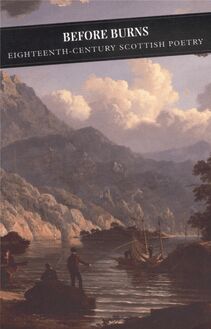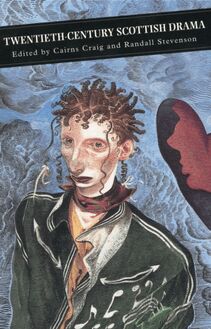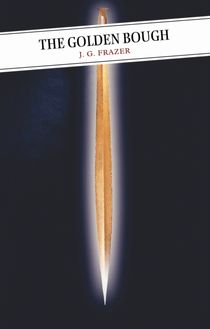-
 Univers
Univers
-
 Ebooks
Ebooks
-
 Livres audio
Livres audio
-
 Presse
Presse
-
 Podcasts
Podcasts
-
 BD
BD
-
 Documents
Documents
-
- Cours
- Révisions
- Ressources pédagogiques
- Sciences de l’éducation
- Manuels scolaires
- Langues
- Travaux de classe
- Annales de BEP
- Etudes supérieures
- Maternelle et primaire
- Fiches de lecture
- Orientation scolaire
- Méthodologie
- Corrigés de devoir
- Annales d’examens et concours
- Annales du bac
- Annales du brevet
- Rapports de stage
La lecture à portée de main
Vous pourrez modifier la taille du texte de cet ouvrage
Découvre YouScribe en t'inscrivant gratuitement
Je m'inscrisDécouvre YouScribe en t'inscrivant gratuitement
Je m'inscrisEn savoir plus
Vous pourrez modifier la taille du texte de cet ouvrage
En savoir plus

Description
Informations
| Publié par | Canongate Books |
| Date de parution | 01 juillet 2010 |
| Nombre de lectures | 0 |
| EAN13 | 9781847675118 |
| Langue | English |
| Poids de l'ouvrage | 5 Mo |
Informations légales : prix de location à la page 0,0360€. Cette information est donnée uniquement à titre indicatif conformément à la législation en vigueur.
Extrait
Contents
Introduction
THE CITY OF DREADFUL NIGHT
Notes
Select Bibliography
Introduction
‘The most anticipative poem of his time’ is how Edmund Blunden described The City of Dreadful Night in his 1932 selection of Thomson’s poetry. Whatever its shifting status may have been among literary critics, it is certainly a poem of notable and sometimes surprising reverberations. Rudyard Kipling read it when he was still at school and tells in his autobiography ( Something of Myself , 1937) how it ‘shock me to my unformed core’. Later, working as a young journalist in Lahore, he used his own nocturnal insomniac wanderings through Lahore’s streets as a Thomsonian analogy in his story ‘"The City of Dreadful Night"’, which is permeated with verbal echoes of Thomson’s poem. Jack London’s The People of the Abyss (1903), an account of his experience of slum life in the East End of London during the previous year, shows how Thomson’s title had already become common currency in its references to ‘The City of Dreadful Monotony’ – an idea not foreign to the original poem. T. S. Eliot freely admitted the strong influence Thomson’s poem had had on him when he began to write, and that influence clearly left its marks on The Waste Land , not only through urban imagery but in philosophical and religious ideas as well. (There is a good discussion of the relation between Thomson and Eliot in Robert Crawford, The Savage and the City in the Work of T. S. Eliot , Oxford, 1987, chap. 2.) And more recently, John Rechy’s novel City of Night (1963), a saga of homosexual hustling in the streets of New York and other American cities, sets down its epigraph from Thomson: ‘The City is of Night; perchance of Death, / But certainly of Night.’ Rechy’s appropriation of the poem suggests a new subtext for the ‘sad Fraternity’ of the Proem, and its statement that ‘None uninitiate by many a presage / Will comprehend the language of the message.’
The potency of this poem, wherever it comes from and however one describes it, is not really in doubt. Counter-arguments based on its rhetorical language, or its pessimistic content, have to face that fact. If Thomson’s reputation has been uncertain, it is tempting to relate this to his being an uprooted Scot living in other places, i.e. is he a Scottish or an English writer, and does it matter? Similar uncertainties have attended the reputations of Carlyle and Stevenson, of John Davidson, of Robert Buchanan and David Gray. It could be argued – has been argued – that in Victorian times Scottish literature suffered from this hiving off of talent (even if the talent is minor, as with Buchanan and Gray), but taken from the point of view of the writers themselves, the question is how easy or difficult it was for a Scottish poet brought up in or migrating to England at that period to write persuasively in English, considering the fact that his antecedents in Scotland were Fergusson, Burns, and Hogg. And if it was difficult, were there nevertheless compensating advantages? The whole change of environment from Scotland to (say) London – the complex of physical, cultural, linguistic changes – may also have forced, under pressure of various kinds, new ways of looking at things, a new awareness of things that an outsider suddenly sees and points out. T. S. Eliot’s published tribute to both Thomson and Davidson – perhaps as an incomer himself he was all the more receptive – was that they had a particular kind of modernity, a sort of prophetic modern adumbration, deeply incorporating urban experience into poetry, which he did not find in their English contemporaries. The two Scottish poets were alienated, whether psychologically or geographically or both, and their lives may fairly be called tragic, but Eliot swept his eye over them more widely and saw them as figures symbolic of the exile and alienation of the early-modern artist.
But who or what alienated Thomson? What made him an alcoholic, an atheist, a pessimist, and are these three quite separate conditions? An early editor and biographer, Bertram Dobell, called him the ‘laureate of pessimism’, and the dubious accolade has not helped enlightenment. Certainly his life was not short of disappointment, frustration, grief. As a child, he saw a much loved younger sister die ‘of measles caught from me’. He was brought up mostly in institutions. He was ‘discharged with disgrace’ from the army. His mining company in America collapsed. He was recalled from the war in Spain as an incompetent reporter. He may, though the facts are wanting, have loved an adolescent girl who died young. His literary work, though highly appreciated by some, did not bring him widespread fame. Towards the end, despite the attempts of friends to look after him, he drank more and more heavily, disappeared for long periods, sometimes in prison, sometimes living on the streets, sleeping in model lodging-houses or just walking about all night. When he was dying he dragged himself to the house of a friend, the blind poet Philip Bourke Marston, and terrified the helpless man by haemorrhaging on his couch. The dreadful nights of the poem are not absent from the life. His last words, according to William Sharp who heard them, were at once so desperate and so defiant that he did not dare to record them.
Whether such personal disasters and guilts are foreground or background, the whole picture would doubtless include the move from Scotland to England, the influence of Darwinism on matters of faith, his acquaintance over many years with the militant atheist Charles Bradlaugh, and the whole modern complex of reactions to living in the mass society of a huge city. Yet to call him the ‘laureate of pessimism’ is a curiously misleading piece of shorthand. Thomson was far from being a gloomy or dull man. He was a lively talker; he loved children and got on well with them; some of his poems, like ‘Sunday up the River’ and ‘Sunday at Hampstead’, are light lyrical tributes to the open air, to picnics and holidays and groups of bantering young friends and lovers. He enjoyed – and it is quite a list – boating, fishing, swimming, horse-riding, grouse-shooting, sleighing, singing, playing poker, dancing quadrilles, playing the clarinet, going to concerts and operas, games of tennis, games of billiards – yes, it is all documented, many nondreadful nights and days. In his literary criticism, which often shows great insight, he praised Burns, Blake, Shelley, Rabelais, Browning, and above all Walt Whitman – writers who have either a fine sense of comedy or a positive, enjoying, forward-looking attitude to life. He had his own darker favourites, like Leopardi and Heine, both of whom he translated, but he did not recommend them at the expense of more optimistic spirits. He was, in fact, a man of unusually wide culture, and although his essays and articles and reviews were mostly published in relatively obscure periodicals like the National Reformer and Cope’s Tobacco Plant (a trade journal in Liverpool with literary leanings – and Thomson being a heavy and enthusiastic smoker was the perfect contributor!), you discover when you read them that he was often more in touch with contemporary developments than (say) Matthew Arnold who, in his essays on modern or recent writers, had a genius for picking out the second-rate or simply not knowing what was really going on in Europe or America, whereas Thomson did know, and he read and translated from French, German and Italian. Thomson was one of the first people in Britain to see the importance of Blake, of Leopardi, of Whitman and Melville, of Stendhal and Flaubert; he admired Edgar Allan Poe; he was interested (as an opium-taker himself, though apparently not a habitual one) in the drug culture of De Quincey and Baudelaire and he referred admiringly to Baudelaire’s Les Paradis artificiels . He loved Beethoven and Mozart and knew their music intimately.
This man of many accomplishments, and many desperations, is seen chiefly as a poet, and although his prose works are certainly recommended reading, it is his poetry which projects itself most strongly. It is very uneven; some of it has tremendous power, some of it is turgid, loose, over-adjectival, trying too hard. Poems of note include ‘In the Room’, a macabre piece in which various items of furniture speak about the man who has lived in the room and who now lies dead on the bed, having poisoned himself; ‘Low Life’, a poem of social comment in the tradition of Thomas Hood’s ‘Song of the Shirt’ and John Davidson’s ‘Thirty Bob a Week’, giving the conversation of a sempstress overheard on a train; ‘A Real Vision of Sin’, a sort of manic horror story ‘written in disgust at Tennyson’s [‘The Vision of Sin’], which is very pretty and clever and silly and truthless’ as his headnote tells us; and poems in praise of Burns and Blake, the latter showing a particular relevance to Thomson himself, and to London:
He came to the desert of London Town
Grey miles long;
He wandered up and he wandered down,
Singing a quiet song …
Some longer poems – ‘The Doom of a City’, ‘To Our Ladies of Death’, ‘Insomnia’ – have close links with The City of Dreadful Night , as does the prose piece (it could be called a prose-poem), ‘A Lady of Sorrow’, with which he opened the volume of his Essays and Phantasies (1881). This last, an impressive meditation on the ‘night-side of nature’, influenced by Novalis’s Hymns to the Night (which Thomson had translated) and probably by Leopardi’s more philosophical poems, contains many of the themes and images of The City of Dreadful Night – the brotherhood, the dead girl, the statue of the woman, the fossils from prehistory, and above all ‘the City, the vast Metropolis which was become as a vast Necropolis, desolate as a Pariah’. ‘The Doom of a City’ is an early, pre-atheist fantasy which goes on much too long but has some powerful scenes, in particular the vision of a City of the Dea
-
 Univers
Univers
-
 Ebooks
Ebooks
-
 Livres audio
Livres audio
-
 Presse
Presse
-
 Podcasts
Podcasts
-
 BD
BD
-
 Documents
Documents
-
Jeunesse
-
Littérature
-
Ressources professionnelles
-
Santé et bien-être
-
Savoirs
-
Education
-
Loisirs et hobbies
-
Art, musique et cinéma
-
Actualité et débat de société
-
Jeunesse
-
Littérature
-
Ressources professionnelles
-
Santé et bien-être
-
Savoirs
-
Education
-
Loisirs et hobbies
-
Art, musique et cinéma
-
Actualité et débat de société
-
Actualités
-
Lifestyle
-
Presse jeunesse
-
Presse professionnelle
-
Pratique
-
Presse sportive
-
Presse internationale
-
Culture & Médias
-
Action et Aventures
-
Science-fiction et Fantasy
-
Société
-
Jeunesse
-
Littérature
-
Ressources professionnelles
-
Santé et bien-être
-
Savoirs
-
Education
-
Loisirs et hobbies
-
Art, musique et cinéma
-
Actualité et débat de société
- Cours
- Révisions
- Ressources pédagogiques
- Sciences de l’éducation
- Manuels scolaires
- Langues
- Travaux de classe
- Annales de BEP
- Etudes supérieures
- Maternelle et primaire
- Fiches de lecture
- Orientation scolaire
- Méthodologie
- Corrigés de devoir
- Annales d’examens et concours
- Annales du bac
- Annales du brevet
- Rapports de stage















